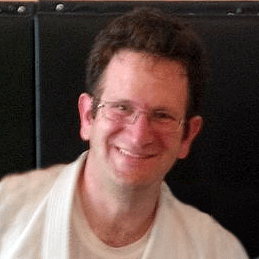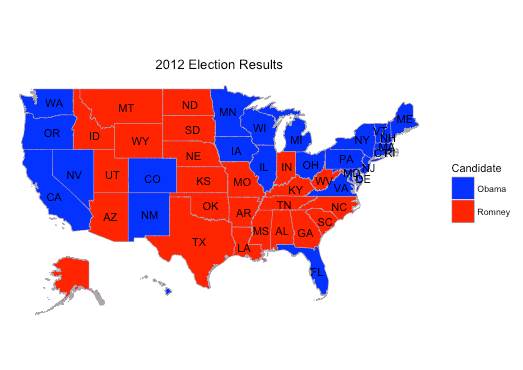Ari Lamstein is a graduate of the FREE Blogging Course and one of the many who took all the knowledge and advice seriously. When Ari emailed me about the success of his new product, I knew I had to interview the guy. I've been thinking of creating new courses geared towards entrepreneurship and creating online businesses. It was cool to hear that Ari has found success in this area, so I wanted to share this and hopefully inspire people.
About 2 years ago, he was working at a real estate company and had a lot of data. He started working on a software/data science project. Check out the full video interview with Ari and read the Q&A he put together below.
Tell me about your open source software project.
The package is called “choroplethr”, and it makes it easy to create choropleth maps in the R programming language. Choropleth maps are just maps that use color to indicate a value. An example is the US Presidential Map: that map uses blue to indicate a democratic state, and red to indicate a republican state. Here’s what that map looks like in choroplethr:
The package is open source and completely free. It’s frequently used by epidemiologists, economists and so on. Basically, if you are using R and want to create this type of map, choroplethr can help you.
How does blogging help your project?
It gives me a central place to announce updates to the package. It also allows me to highlight related work that might be of interest to my readers. For example, I frequently blog about geospatial open datasets, such as US Census Data.
I also do a lot of guest blogging. That gives me a chance to introduce the package to a new audience, and demonstrate the kinds of analyses that the package supports.

How do you grow your mailing list?
Last year I ran a free workshop about analyzing US census data with choroplethr. I decided to create a free email course based on that workshop. The email course is called “Learn to Map Census Data in R” and about 1,500 people have taken it. It’s been fun to run that course and talk to people as they go through it.
What made you decide to create a paid course?
As the project grew in popularity, I wanted to talk in more detail about how certain parts of it work. The result is my course, “Mapmaking in R with Choroplethr”. I thought that the course would take me about three weeks to create, and I simply couldn’t afford to do it for free.
How has the course done?
Financially, it has done much better than I expected. In the first month it grossed about $3,500. Also, the course has generated a lot of consulting leads.
What advice do you have for other open source developers?
There’s a large market for technical training. If you enjoy teaching, you can certainly enter it. My path was project -> blog -> free course -> paid course. I suspect that that path can be used by other people as well.
What books do you recommend?
Here's my list of recommended resources. Note that none of them are books. I hope that's ok. I read dozens of books a year, but I think that if people want to do what I’ve done, they are better off reading these articles and using these resources.
These resources were the most helpful to me as I created a product based on my open source project:
- Jon Morrow's Six Figure Roadmap for bloggers. My biggest lessons here were his emphasis on guest blogging and creating a compelling opt-in for readers of my blog. I think that this is a great follow up to your blogging course.
- Nathan Barry’s Lessons Learned Selling $355,759 on Gumroad. My biggest lesson here was Nathan's emphasis on being able to contact your customers via email.
- Teachable. This is the company that hosts my course. They have weekly informational webinars which I found to be very helpful.
- Amy Hoy's Just Ship. My biggest lesson here was to get comfortable cutting sections from my course that I felt were important, but in the end were not necessary.
- Toastmasters. A lot of my course's success is due to my experiences speaking at conferences and meetups in the year before releasing the course. Toastmasters has really helped me with that.

